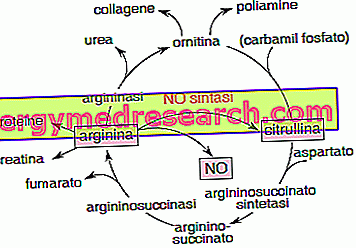
Characteristics of the medicinal product
Ovitrelle comes in the form of powder and solvent to be mixed to obtain an injectable solution. It is also available as a solution for injection in a pre-filled syringe. The active ingredient contained in Ovitrelle is choriogonadotropin alfa.
Therapeutic indications
Ovitrelle is indicated in women undergoing treatment for ovarian stimulation, ovulation induction (oocyte release) and the development of the special ovarian structure (the corpus luteum ) that promotes pregnancy. It can also be used in women who undergo fertility treatment (assisted reproduction techniques such as in vitro fertilization - IVF) and in anovulatory patients (that is, who do not produce oocytes) or oligo-ovulatory patients (which produce, that is, too few oocytes ).
Ovitrelle can only be obtained with a prescription.
Method of use
Treatment with Ovitrelle should be performed under the supervision of a doctor experienced in treating fertility problems. Ovitrelle is administered subcutaneously (under the skin). The powder must be mixed immediately before use with the supplied solvent.
Administer one vial of Ovitrelle (250 micrograms) 24 to 48 hours after the ovarian production of sufficiently mature follicles (oocytes ready for ovulation). In women on fertility treatment this generally coincides with the 24-48 hours following the end of the previous ovarian stimulation treatment (for example, administration of FSH, a follicle stimulating hormone, or of hMG, human menopausal gonadotropin).
Mechanisms of action
The active substance in Ovitrelle, choriogonadotropin alfa, reproduces the natural hormone hCG or human chorionic gonadotropin, otherwise known as the pregnancy hormone. HCG is present in the body during pregnancy, favoring the maintenance of the corpus luteum and, consequently, of the pregnancy itself. In fertility treatments, hCG is used because it is similar to the luteinizing hormone (LH), which is the hormone that induces ovulation during the menstrual cycle. Choriogonadotropin alfa in Ovitrelle is produced by a method known as "recombinant DNA technology"; that is, it is obtained from a cell in which a gene (DNA) has been introduced which makes it capable of producing human chorionic gonadotropin.
Studies carried out
The efficacy of Ovitrelle was studied mainly in women undergoing fertility treatment (1140 patients). Two dosages were tested, 250 micrograms and 500 micrograms, evaluating the effectiveness of Ovitrelle on the basis of the quantity of oocytes released. Ovitrelle was compared to the natural hCG hormone taken from urine. a study was also dedicated to women who are unable to ovulate.
Benefits found following the studies
Ovitrelle proved to be as effective as hCG of urinary origin for egg production; the 250 microgram dosage efficacy was the same as the 500 microgram dosage. In anovulatory women, ovulation was found in 91.9% of patients treated with Ovitrelle.
Associated risks
Among the most frequent side effects (found in 1 - 10 patients in 100) are: local reaction / pain at the injection site, headache, fatigue, vomiting, nausea (feeling sick), abdominal pain (stomach ache) and ovarian hyperstimulation syndrome (eg, feeling of nausea, weight gain, diarrhea). Ovarian hyperstimulation syndrome is characterized by an abnormal response to ovarian treatment, particularly when ovarian stimulation drugs are used. Do not administer Ovitrelle in patients with hypersensitivity (allergy) to choriogonadotropin alfa or other excipients, or in subjects with hypothalamus and pituitary cancer, or carcinoma of the ovary, uterus or breast. Do not use when a response cannot be obtained (for example in the case of ovarian failure). Do not administer in patients who present with ovarian enlargement or cysts not due to polycystic ovary syndrome, in the event of unexplained vaginal bleeding or pregnancy pregnancy during the previous 3 months. Ovitrelle should not be used in women with thromboembolic disorders (blood clots) in progress. For the complete list of limitations, see the package insert.
Grounds for approval
The Committee for Medicinal Products for Human Use (CHMP) decided that Ovitrelle's benefits outweigh the risks for women who need to have ovulation before undergoing fertility treatment, and in anovulatory or oligo-ovulatory women and has therefore it is recommended that Ovitrelle be given marketing authorization.
Further information
On 2 February 2001, the European Commission issued a marketing authorization valid throughout the European Union for Ovitrelle to Serono Europe Limited. The marketing authorization was renewed on 2 February 2006.
For the full version of the evaluation (EPAR) of Ovitrelle, click here
Last update of this summary: 10-2006.



